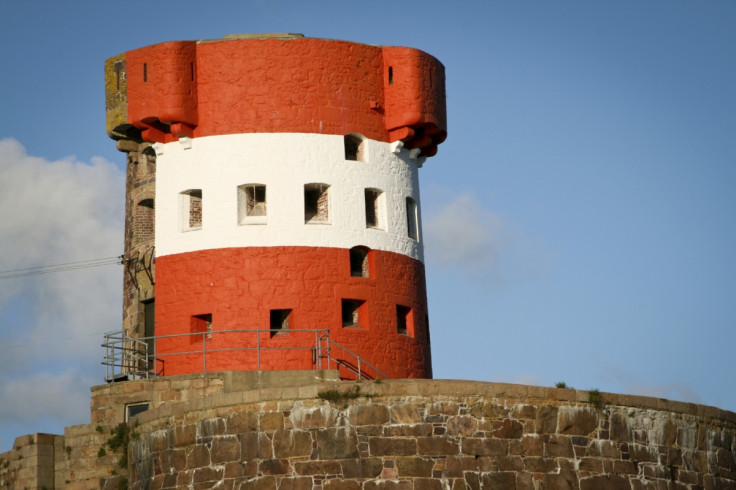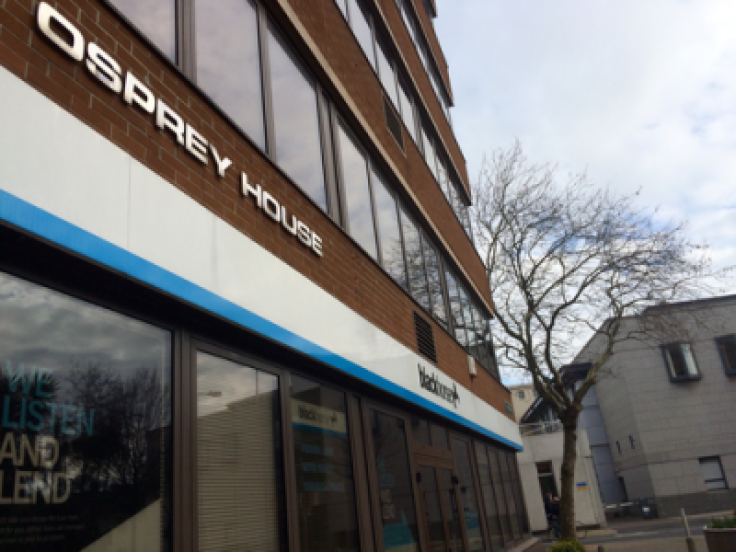Panama Papers: British tax havens Jersey and Guernsey in spotlight over Mossack Fonseca leak

Panama and the British Virgin Islands have been front and centre in discussion of the so-called Panama Papers leak of 11.5 million documents from global bank Mossack Fonseca, but three islands within 100 miles of Britain have also been embroiled in the growing furore over the use of tax havens by global figures linked to Russian President Vladimir Putin, Syrian President Bashar al-Assad and Saudi Arabia's King Salman bin Abdulaziz.
The files revealed by the International Consortium of Investigative Journalists (ICIJ) showed that 500 banks, their subsidiaries and branches registered 15,600 shell companies with Mossack Fonseca, and three of the biggest on that list were based in the Channel Islands of Jersey and Guernsey. The Isle of Man, also a low-tax jurisdiction, was also prominent in the findings, which were published by the Guardian and the BBC.
The files revealed that Credit Suisse Channel Islands was the third biggest bank in the number of offshore companies it requested for clients, with over 900 listings, while private bank Coutts & Trustees (Jersey) Limited came seventh. Another firm, Rothschild Trust Guernsey Limited, came tenth. There is no suggestion that any of the banks in question - or their clients - have broken any laws and Mossack Fonseca has denied it is involved in any "illegitimate activities".
The firm at the centre of the scandal, Mossack Fonseca, occupy an office on the fourth floor of a tatty, 1970s office building opposite Cyril Le Marquand House in the Jersey capital, St Helier, as well as in dozens of other offshore jurisdictions from Colombia to the Chinese city of Hangzhou. A company filing with the Jersey Financial Services Commission shows that the company was registered in 1992 and filed its latest return in January 2016.
Credit Suisse said in a statement to IBTimesUK that it: "conducts its cross-border banking business in strict compliance with all the applicable laws, rules and regulations in the markets in which it operates. For Credit Suisse it is key that its clients use structures only for legitimate purposes, e.g. organizing the wealth of families that have a wide range of financial assets which are held in different countries."
A spokesperson for Coutts Trustees said: "Coutts Trustees is committed to the highest standards of regulatory compliance, including tax laws, anti-money laundering regulations and international sanctions. We require all clients to be tax compliant as a condition of receiving our products and services and take a risk based approach to identify and prevent tax evasion that relies upon extensive anti-money laundering systems and controls, including the requirement to understand the source of clients' wealth. The provision of trust and administration services is an entirely legitimate and key aspect of wealth management and succession planning."
Jersey Finance, the marketing arm of Jersey's offshore industry, and senior government officials contacted by IBTimesUK did not reply for requests for comment Monday. Multiple figures within the finance industry in both Jersey and Guernsey also declined to be interviewed, but one trust company director in Jersey told IBTimesUK that although he knew Mossack Fonseca had offices in Jersey: "I've never come across them, it has to be said."

The director, who declined to be named, said that Panama and Jersey were at different ends of the spectrum when it comes to offshore finance, with the former famously unregulated and the latter having worked hard to develop agreements with national governments over tax avoidance.
"Panama has always been a jurisdiction [that] has not been thought of very highly. It is a very secretive environment and they've had things within their legislation that people don't think that is great [...]. Much of the wealth that comes into Jersey is institutionalised and it is not really the type of wealth that a dictator [is] parking money that isn't legitimate [...]. Jersey isn't the sort of place where you're going to find someone like Gaddafi."
But the Panama Papers will undoubtedly be an issue for Jersey and Guernsey at a time when scrutiny of its offshore industry is rising. Britain's Conservative government under David Cameron – whose father was one of the figures named in the leak, although there is no indication that his tax affairs were against the law – has been outspoken in its criticisms of tax avoidance and introduced new legislation that has curtailed the industry.
That scrutiny has increasingly led Jersey – where the industry is dominated by private banking than Guernsey – to seek new markets in Russia, the Middle East and China. The islands set up new offices in Abu Dhabi, Shanghai and Moscow in recent years as hostility to tax avoidance grew in Europe and the UK.
Jersey and Guernsey may not be comparable to places such as Panama, which permits far more secrecy than the Channel Islands, but the Mossack Fonseca leak has come at a difficult time for the islands and an industry that employs the bulk of both of their populations: "Any bad publicity about what people are using offshore companies to do [...] isn't good for anyone involved in the offshore jurisdiction, especially those that have put a lot of time and effort into making sure what they are doing is legal," said the Jersey-based director.
© Copyright IBTimes 2024. All rights reserved.






